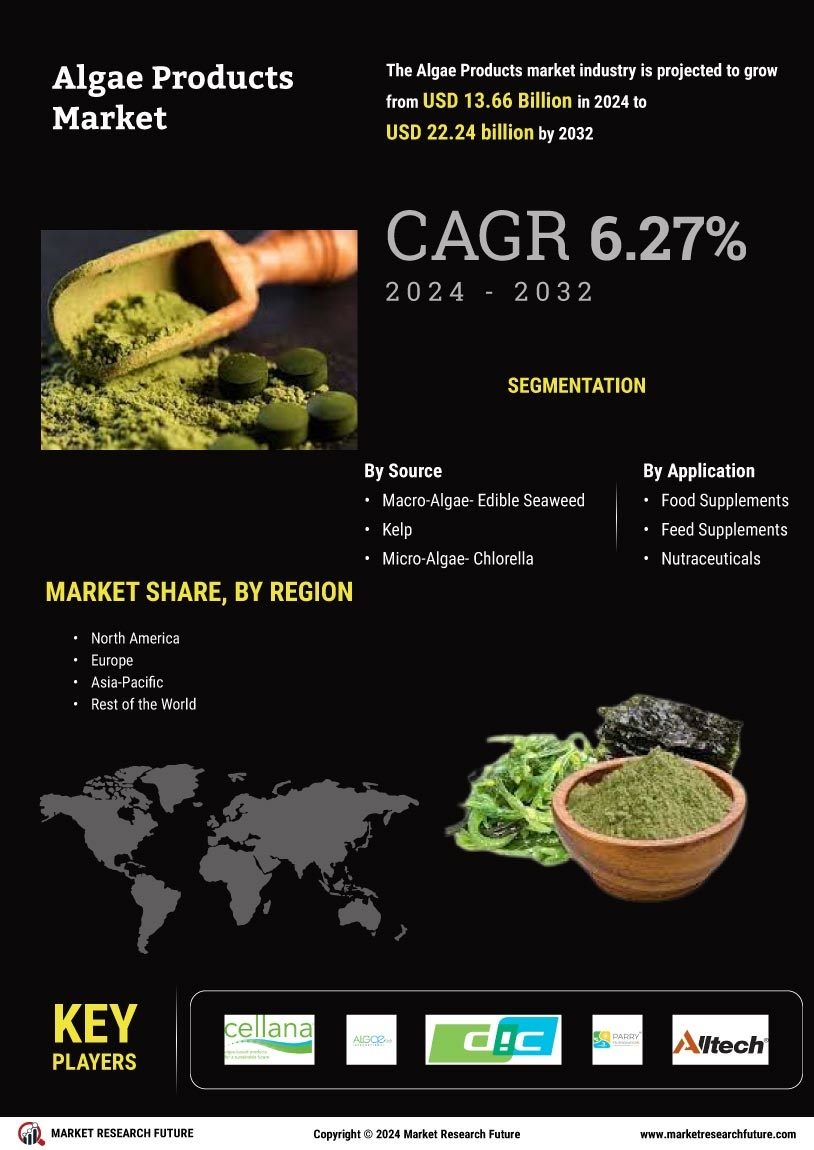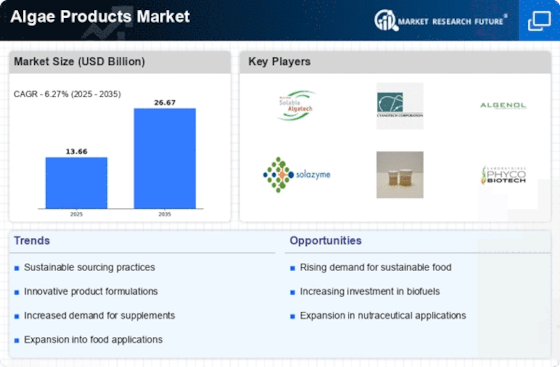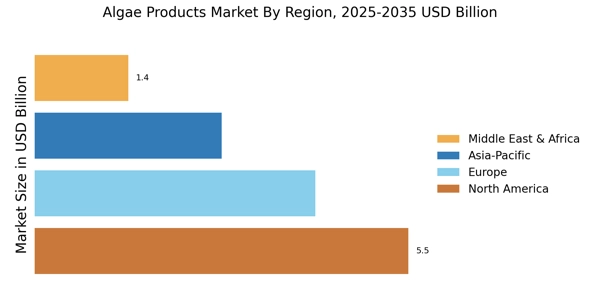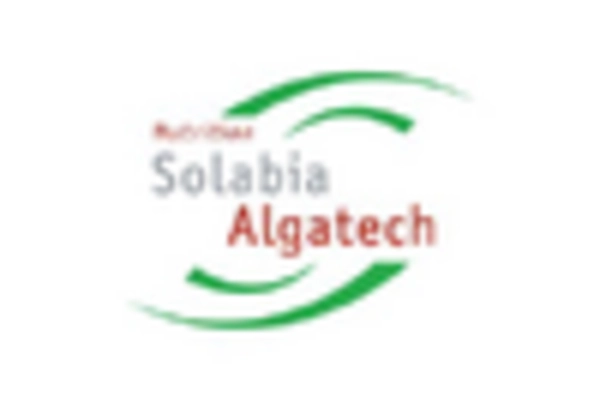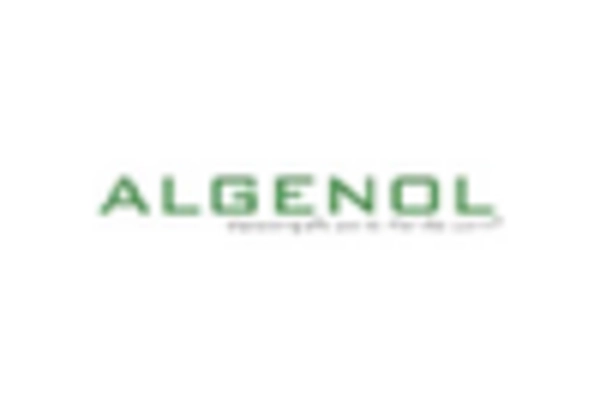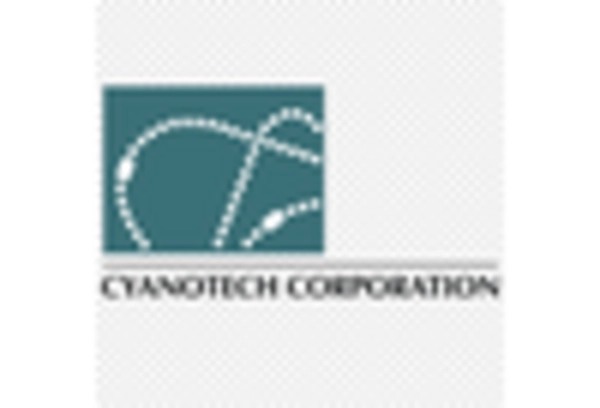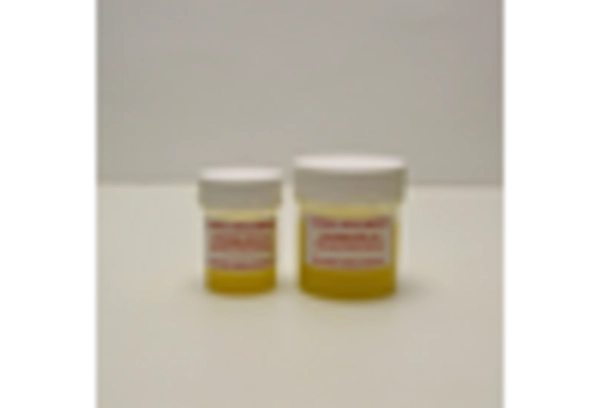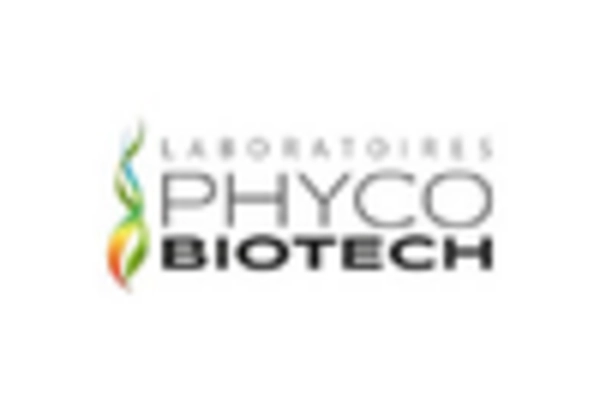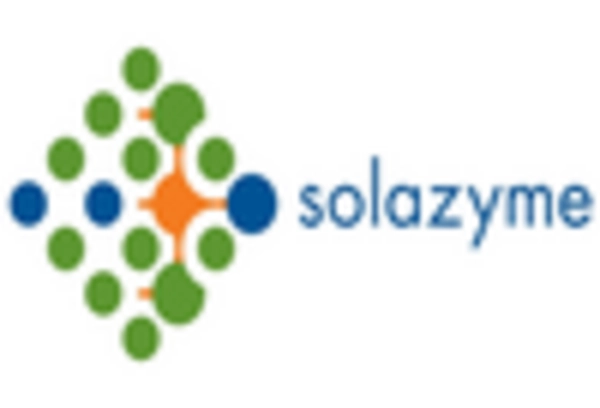Health Benefits and Nutritional Value
The algae products Market is increasingly recognized for its health benefits and nutritional value. Algae are rich in essential nutrients, including omega-3 fatty acids, proteins, vitamins, and minerals, making them a valuable addition to diets. The global market for algae-based dietary supplements is expected to grow significantly, with projections indicating a value of USD 1.2 billion by 2025. This growing awareness of the health benefits associated with algae consumption is driving demand across various sectors, including food and wellness. As consumers prioritize health and nutrition, the Algae Products Market is poised to capitalize on this trend, offering products that cater to health-conscious individuals.
Rising Demand for Sustainable Products
The Algae Products Market is experiencing a notable surge in demand for sustainable products. Consumers are increasingly aware of environmental issues and are seeking alternatives to traditional agricultural practices. Algae, being a renewable resource, offers a sustainable solution for various applications, including food, cosmetics, and biofuels. The market for algae-based food products is projected to reach USD 1.5 billion by 2026, indicating a robust growth trajectory. This shift towards sustainability is not merely a trend but appears to be a fundamental change in consumer behavior, driving companies to innovate and adapt their offerings. As a result, the Algae Products Market is likely to benefit from this growing consumer preference for eco-friendly products.
Expanding Applications Across Industries
The Algae Products Market is diversifying as new applications for algae are being explored across various sectors. Beyond traditional uses in food and supplements, algae are finding roles in pharmaceuticals, bioplastics, and biofuels. The increasing interest in bioplastics, for instance, is driven by the need for sustainable alternatives to petroleum-based products. The market for algae-based bioplastics is expected to grow significantly, reflecting a broader trend towards sustainability in manufacturing. This expansion into new applications not only broadens the market scope but also enhances the economic viability of algae production. As industries seek sustainable solutions, the Algae Products Market is likely to thrive.
Government Support and Regulatory Frameworks
The Algae Products Market is benefiting from supportive government policies and regulatory frameworks aimed at promoting sustainable practices. Various governments are recognizing the potential of algae as a renewable resource and are implementing initiatives to encourage research and development in this field. Funding programs and grants for algae-related projects are becoming more common, facilitating innovation and growth. Additionally, regulatory frameworks that support the commercialization of algae products are being established, providing a clearer pathway for market entry. This governmental support is crucial for the Algae Products Market, as it fosters an environment conducive to investment and development, ultimately driving market growth.
Technological Innovations in Algae Cultivation
The Algae Products Market is witnessing a wave of technological innovations that enhance algae cultivation processes. Advances in biotechnology and cultivation techniques are improving yield efficiency and reducing production costs. For instance, the development of photobioreactors allows for controlled growth conditions, leading to higher biomass production. This technological progress is crucial as it enables producers to meet the increasing demand for algae products while maintaining quality. The market is projected to grow at a compound annual growth rate of 8.5% from 2023 to 2030, driven by these innovations. Consequently, the Algae Products Market is likely to see a transformation in production capabilities, making it more competitive and sustainable.
